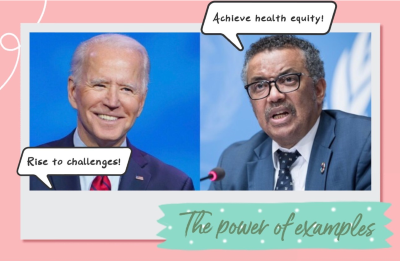



  




 



 
|
| 24. 01. 2021 ISSUE 28 | |||
|
|
Foreword |
|||
|
Dear readers, The second term has begun for two weeks, and the face-to-face teaching format remains a minority. You may be rather concerned by the negative impact on your learning under the limitations of hardware like dormitory, computer and broadband. You should have been missing the dynamic campus and longing for a colourful school life. However, if you are a first-year student, I bet you will pour ridicule on yourself and complain, “I have never lived a normative campus life at all. Dynamic and colourful or not? There is no precedent for comparison!” Certainly, we need real-life examples to broaden our experience, enrich our reminiscences and differentiate what we have at present from what were lacked in the past, so as to make our time on earth holistic. While the campus has become somewhat desolate amid numerous social distancing and restricted gathering measures, the world outside continues to be in a hubbub. The incidents which have raised a lot of eyebrows recently are definitely the launch of global COVID-19 vaccination programme and the anarchic United States presidential transition. There are always optimistic people who see the introduction of various vaccines on the market a prompt end to the COVID-19 pandemic. They have confidence that avoiding the plague and overcoming economic malaise will lead to the rapid restoration of daily normal and world order. The crucial question, in my opinion, is whether every corner of the world can enjoy the mass inoculation even though various vaccines will be proven powerful. The Director-General of the World Health Organisation Tedros Adhanom Ghebreyesus said the other day that more than 39 million COVID-19 vaccine doses had been administered in at least 49 higher-income countries so far, but only 25 doses in one low-income country. COVAX, an international platform set up to ensure equitable access to shots, revealed that the doses supplied to 92 poor countries would only correspond to 27 percent coverage of their populations! We are within a tertiary educational setting that manifests itself as a bastion of creating and imparting knowledge for the benefit of society. Can we contribute to dealing with disparities in the distributions of healthcare resources and accessibility? Is the newly established Institute of Health Equity in our University a good example to define our role? As for the inauguration of Joe Biden as the 46th president of the United States, he mainly shed light on unity and truth, but also emphasised renewal and resolve which, I think, constitute a de facto restoration of world order. He knew the restoration would run into huge challenges, and hence suggested, “Not to meet yesterday’s challenges, but today’s and tomorrow’s challenges. And we’ll lead not merely by the example of our power but by the power of our example.” When an increasing number of young people despise figureheads, downplay leadership and overthrow authority nowadays, are examples still valued? Or we, being adults, should feel ashamed of having failed to set an example to others? Towards the close of Chinese Year Gengzi, I hope you will join me to start reutilising the power of examples. Without it, the breadth and depth of my experience will shrink, my goals will become vacuous, and my return for the community, if any, will lose lustre. Sincerely yours, Irene Ng |
|
||
|
|
|||
|
Past Issue
| |
|
|
|
|
|
